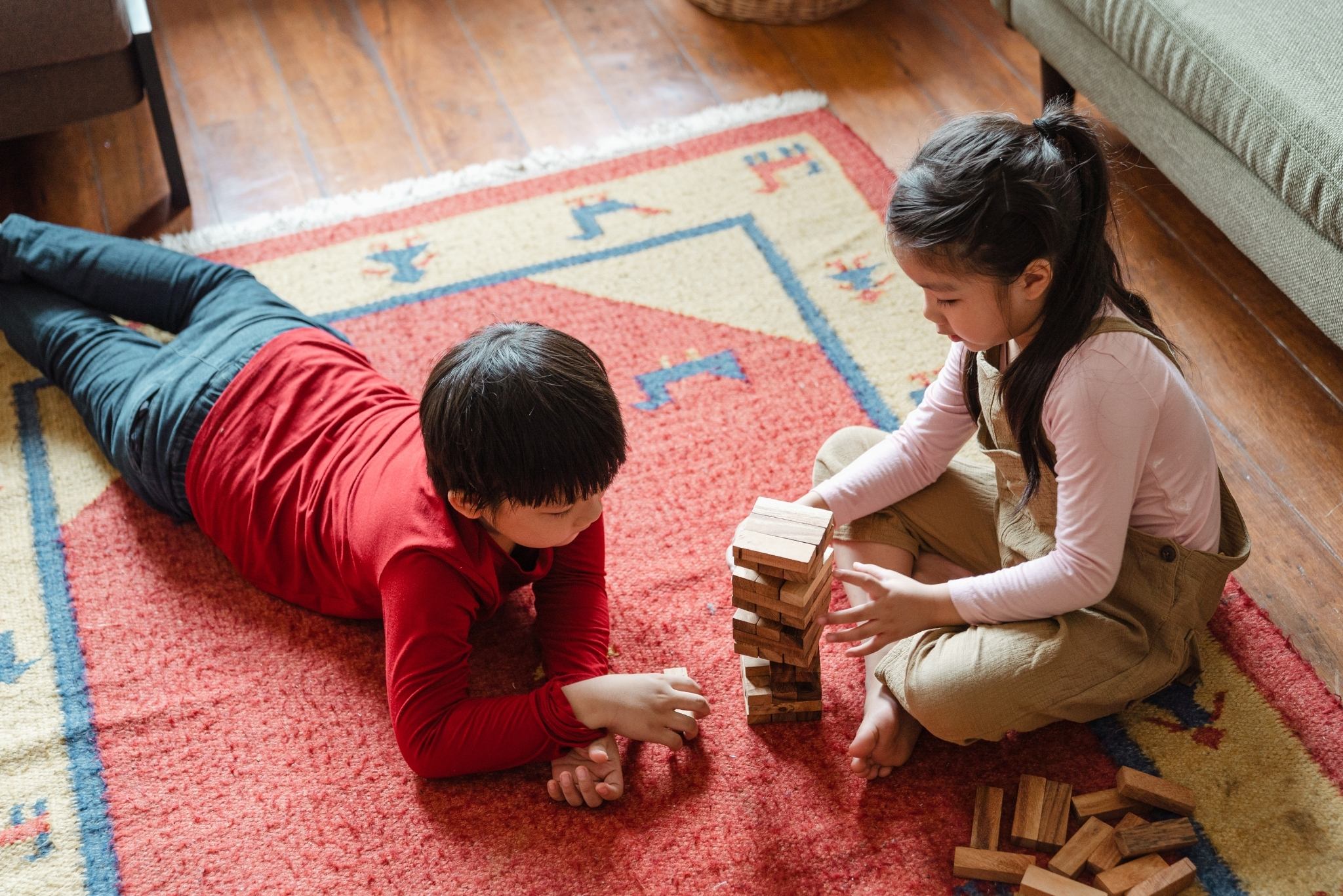
Play-based learning is essential for children with autism since it helps them nurture skills integral to learning and overall development. Studies also suggest that play-based learning, especially during formative years, can significantly influence the way a child’s brain develops. Moreover, it helps coordinate their physical and mental capabilities as well.
Through play, kids with autism can develop the following skills:
- Language and Observation
- Imitation Skills
- Sharing & Co-Operation
- Abstract Learning
- Age Appropriate Skill Development
- Gross & Fine Motor Skills
- Problem-Solving Abilities
- Improved Memory
- Higher Retention Capacity
- Creativity and Imagination
However, it is important to note that play is a documented field of difference in autism. For instance, while some children’s pretend play will likely be perceived as stereotypic, monotonous, and repetitive, others may engage in a more solitary type of play, indicating that these patterns differ from one child to another. As per the research article titled ‘Physical Activity and Physical Fitness of School-Aged Children and Youth with Autism Spectrum Disorders’ and Teaching Children With Autism Appropriate Play In Unsupervised Environments Using A Self-Management Treatment Package (PMC), children with ASD are less likely to be physically active compared to their peers; however, studies reveal that they are just as capable of being engaged and involved in play-based activities!
A child with autism may also require assistance in terms of understanding and learning how to play, thus presenting parents and children with an incredible opportunity to build a stronger bond and participate in an enriching experience.
How do I engage my autistic child in play activities?
Similar to typically developing children, kids with autism enjoy learning through play. When you actively assist your child in understanding how to play, you subsequently help them acquire and nurture valuable skills, such as sharing, consideration, taking turns, communicating and interacting, expressing feelings, and numerous others.
But, for parents of children with autism spectrum disorder (ASD), challenges associated with communication and interaction can be amplified and sometimes even seem overwhelming in a play-based setting. So, here are some tips to help your autistic child engage in play activities:
1.) Opportunities for Imitation/Observation
Kids on the autism spectrum find it difficult to learn from observing their environment. If your child does not play with toys appropriately or engages with only specific toys, it is essential that you practically demonstrate how to play. For instance, you can include different toys similar to the ones they already use; however, do not impose your expectations on the child. Instead, engage with the toys close to where your child is and ensure that you use innovative play methods. Treading slowly and steadily, let the kid approach you and then, gradually introduce the same play with them. For the best results, incorporate this method of play-based learning at least 5-6 times a week. And don’t hesitate to make the playtime fun and silly, because your kid will certainly love that!
2.) Explore structured play
Kids with autism may experience complications during pretend play owing to generativity issues. For instance, a child may find it difficult to generate or produce novel actions and ideas required during pretend play. In this case, structured play can prove to be highly beneficial, as it helps children acquire social skills and understand the concepts of sharing and turn-taking in a deeper manner. Characterized as a type of playing where adults (or parents) direct the child’s play, structured play entails choosing interesting and interactive activities with clear, manageable objectives and goals. These factors also create a low-stress environment where children can experiment with the skills required to play effectively with other kids.
3.) Remember to keep trying and experimenting
As you continue exploring different play methods, often, the best-planned activities may not work out for your kid. In this case, it can be extremely overwhelming and disheartening to see your child struggle with an activity you hoped would be enjoyable and successful. But don’t give up just yet! Here, it is important that parents understand how certain aspects of an activity can be altered or modified in a way that best suits the child’s learning needs. Aligning with this, here are four different play methods to incorporate into your child’s routine:
- Toy Play – Toy play is defined as learning how to use and play with toys in the manner they were designed. These include bringing a toy cell phone to the ear and speaking, pushing a toy train, throwing or kicking a ball, and playing with fidget spinners. Based on the kind of play items your child likes, toy play can significantly help develop creativity, thinking, and problem-solving skills.
- Constructive Play – Building and making things constitutes constructive play. It involves working towards an objective, for instance, stacking blocks to build a tower, finishing a jigsaw puzzle, and painting or drawing a picture. In addition to nurturing their creative side, constructive play also helps in the development of motor skills.
- Cause-and-Effect Play – Cause-and-effect play enables a child to learn that their actions can have a consequence or cause something to happen, thus providing them with a sense of control. To encourage your child with this type of play, you can show them how pressing a key produces sounds on a piano or how pressing a button makes an object pop up, and then take turns to continue playing.
- Physical Play – Physical play provides your kid with full-body exercise while helping them to develop gross motor skills. Moreover, engaging in physical play can serve as a wonderful opportunity for your little one to explore his or her surroundings while communicating and interacting with those around them.
Get in touch with a reliable center-based ABA therapy provider
Center-based applied behavior analysis (ABA) therapy, such as those offered by Early Autism Services, presents a fun and interactive environment for children to explore, learn, and grow. These facilities also have experienced and trained behavior analysts to help support your child’s growth and development. So, make sure you get in touch with the right ABA therapy center near you and provide your child with the myriad benefits associated with play therapy for autism.
Finding The Right Play-Based Center For Your Child
Play-based learning is crucial for an autistic child’s development of emotional and social skills, including the capability to nurture positive relationships with peers. As children interact and play together, they also learn to get along with one another, communicate effectively, cooperate, and effectively resolve conflicts. And with data-driven and goal-oriented programs, EAS utilizes a play-based learning model as well as table time learning, interactive peer play, and free play.
Our experienced team of clinicians will help build a personalized program for your child and work toward achieving those targeted goals, including social skills, play skills, behavior planning, self-help, pre-academic skills, and numerous others. So, if you are ready to schedule a free consultation, or wish to speak with our experienced team, get in touch with us right here.


